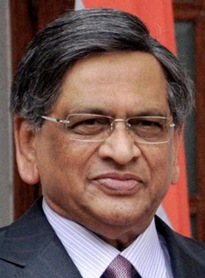 After a series of delays at various levels, false-starts, slip-shod trial and error experimentation at the Indian and Sri Lankan capitals, the massive Indian housing project for the displaced Tamils is set to take off.
After a series of delays at various levels, false-starts, slip-shod trial and error experimentation at the Indian and Sri Lankan capitals, the massive Indian housing project for the displaced Tamils is set to take off.
External Affairs Minister S.M. Krishna, and his team that deals directly with the project, including the Joint Secretary (BSM) Harsh Vardhan Shringla, Adviser Raghavendra Shastry, will review the project on the ground, once they arrive here on January 16. They will be assisted by the team headed by High Commissioner to Sri Lanka Ashok K.Kantha, who worked on redrawing the implementation of the project. “Apart from the political settlement issue, the housing project will be the major item of his [Mr. Krishna’s] agenda,” one official said.
The issues that confronted policymakers in Colombo and New Delhi were this: more than a year after Mr. Krishna laid the foundation stone for the project in Jaffna, only a meagre number of houses have been built, as part of a $10 million pilot project. Mr. Krishna, who has been following the progress, had directed his Ministry to “get moving” on it. The reasoning was that India could not be seen as lagging behind on a prestigious project.
The Indian Cabinet in December 2011 accorded approval for the reconstruction and repair, at a cost of $ 260 million, 49,000 houses for Internally Displaced Persons (IDPs) in the Northern and Eastern Provinces and for Indian Origin Tamils in Sri Lanka under grant assistance from the Government of India.
Owner-driven model
The crucial difference in the redrawn project is that this will primarily be implemented under the owner-driven model: beneficiaries will undertake the reconstruction of their houses. Funds will be released directly by the High Commission of India into their bank accounts based on certification of progress of work. As many as 38,000 houses will be built under this model.
But for those from vulnerable sections, who are unable to build their own houses construction agencies will take up the work. This is hardly 6,000 houses. The second major point of departure is employing U.N. agencies as project management consultants. The Sri Lankan government is involved in all stages of the project.
(For updates you can share with your friends, follow TNN on Facebook and Twitter )
